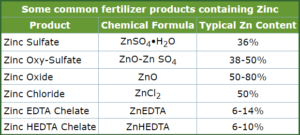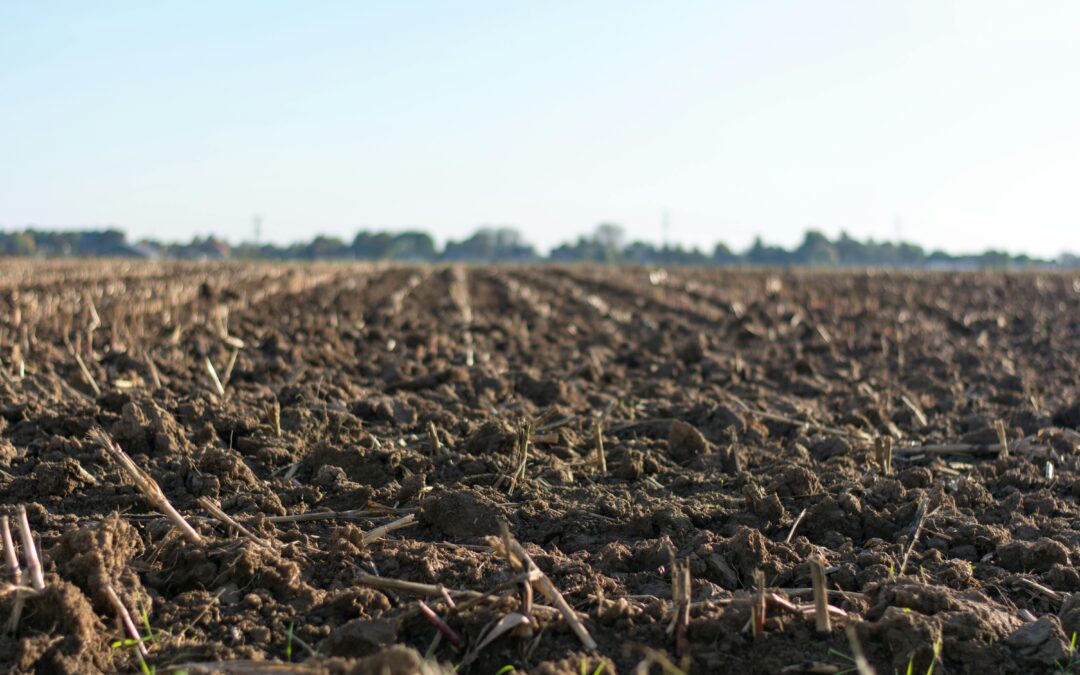What is the Role that Zinc Plays in the Soil?
When it comes to soil health, zinc is a crucial micronutrient that many overlook. It is often overshadowed by essentials like nitrogen, phosphorus, and potassium. What is the role that zinc plays in the soil? Zinc, often overshadowed by nutrients like nitrogen, phosphorus, and potassium, is crucial for soil health and plant growth, enhancing chlorophyll production and enzyme creation. This post details strategies to optimize zinc for crops and lawn care, enhancing soil health and productivity.
1. Introduction: The Significance of Soil Health and the Role of Nutrients
In agricultural and sustainable farming, the foundation of crop productivity and longevity is rooted in soil health. While often highlighted, nutrients like nitrogen and phosphorus overshadow zinc, a crucial yet overlooked micronutrient. Zinc catalyzes essential plant processes like growth regulation and photosynthesis, enhancing development and stress resilience. Its absence can reduce yields, hinder growth, and increase disease risk, affecting roots, seeds, and fruits. Moreover, zinc enhances soil fertility and nutrient cycling, balancing soil pH and boosting other nutrients’ effectiveness. Despite its key role, zinc deficiency is common worldwide, influenced by soil pH, organic content, and farming techniques. This post explores zinc’s role in soil health and methods to address its deficiency, boosting sustainable farming.

2. Understanding Zinc: Its Importance as an Essential Nutrient for Plant Growth
Zinc, essential but often overlooked, is key to soil health and agricultural productivity. As a key micronutrient, zinc is crucial for DNA synthesis, protein metabolism, and hormone regulation in plants.
Moreover, zinc impacts hormone synthesis that controls root development, flowering, and fruiting. Ensuring adequate zinc levels is crucial for hormonal balance and healthy plant growth.
Zinc enhances the uptake and absorption of vital nutrients like phosphorus, iron, and magnesium. This integration ensures that plants receive a comprehensive nutrient mix necessary for optimal growth. Insufficient zinc can lead to severe nutrient deficiencies, manifesting as stunted growth, diminished yields, and general health deterioration.
Additionally, zinc develops plant defenses by producing phytochemicals and antioxidants, enhancing health and resistance to pests.
Zinc availability in soil may be limited by factors like soil pH, organic matter, and texture. It’s essential for farmers and gardeners to assess their soil’s characteristics and adopt appropriate zinc supplementation strategies to promote optimal plant nutrition.
In summary, zinc’s intricate role in enzyme activity, hormone regulation, nutrient uptake, and disease resistance underscores its vital contribution to soil health and plant productivity. By understanding and leveraging zinc’s benefits, we can enhance crop performance and foster a sustainable agricultural environment.
3. The Functions of Zinc in Soil: Enzyme Activation, Hormone Regulation, and More
Zinc is crucial yet often overlooked in enhancing soil health and boosting agricultural productivity. This vital micronutrient ensures optimal plant growth through a variety of functions. One key role of zinc is its involvement in enzyme activation. Enzymes are vital for facilitating various plant biochemical reactions, such as nutrient uptake and metabolism. Zinc serves as a cofactor, activating these enzymes, which is essential for maintaining robust plant growth.
Moreover, zinc plays a pivotal role in hormone regulation within plants, influencing processes such as growth, flowering, and fruiting. It supports the synthesis and balance of plant hormones, which are crucial for coordinating internal processes and optimizing yield.
Zinc is also integral to plant cell membrane formation and stability. It enhances membrane integrity, which is crucial for nutrient absorption, water regulation, and environmental stress protection. A deficiency in zinc can lead to compromised cell membrane function, which impedes nutrient transport and increases susceptibility to diseases.
Additionally, zinc is vital for chlorophyll production, the engine behind photosynthesis—the process by which plants convert sunlight into energy. Insufficient zinc can disrupt this process, diminishing photosynthetic efficiency and plant vigor.

Beyond these roles, zinc assists in protein and carbohydrate synthesis, DNA replication, and repair, and bolsters plant stress tolerance, underscoring its importance in soil health and plant fertility.
To maintain adequate zinc levels, strategies like soil testing, organic amendments, and targeted fertilization are recommended. Understanding zinc’s roles can dramatically improve plant health and boost agricultural output.
4. Zinc Deficiency in Soils: Causes, Symptoms, and Impacts on Plant Growth
Zinc deficiency is a critical issue affecting soil health and plant growth. Understanding the causes, symptoms, and impacts of this deficiency is essential for effective farm management. Zinc scarcity often originates from soils formed from zinc-poor parent materials, such as granite or quartz-based rocks, compared to those derived from zinc-rich volcanic or limestone sources. Additionally, heavy rainfall and improper irrigation can lead to excessive leaching, further depleting zinc availability.
Recognizing the signs of zinc deficiency is crucial for timely intervention. Affected plants may show stunted growth, delayed maturity, interveinal chlorosis (green veins on yellow leaves), necrotic spots on leaves, and a general decline in vigor and productivity. The absence of adequate zinc disrupts critical enzymatic reactions necessary for photosynthesis, hormone production, and the synthesis of proteins and carbohydrates, leading to diminished chlorophyll and poor nutrient uptake.
Zinc deficiency leads to compromised metabolism, reduced growth, lower yields, and decreased resilience. To counteract this, applying zinc fertilizers such as zinc sulfate or chelates can replenish deficient soils. However, correct dosing is crucial to avoid toxicity. Soil testing and expert consultation are recommended to determine optimal zinc supplementation strategies.
In sum, zinc plays a pivotal role in plant health and productivity. Addressing zinc deficiency effectively ensures robust agricultural systems and underscores the necessity of monitoring and maintaining essential micronutrient levels in the soil.
5. The Relationship Between Zinc and Crop Yield: Studies and Evidence
The close link between zinc and crop yield underscores its vital role in enhancing soil health and productivity. Additionally, many studies show zinc as a crucial micronutrient boosting plant growth and yield through key physiological processes.
Research indicates that zinc is integral to enzyme activation, DNA synthesis, protein synthesis, and hormone regulation, which are essential for plant metabolism, photosynthesis, and energy production. These contributions are crucial for ensuring healthy and vigorous crop growth. Field experiments and controlled studies have established a positive correlation between adequate soil zinc levels and enhanced crop yields. Similarly, proper zinc nutrition enhances root development, improving nutrient uptake, disease resilience, and environmental stress tolerance.
Conversely, zinc deficiency can severely reduce crop output, causing stunted growth, leaf discoloration, poor flowering, and less fruit, leading to lower yields. Such visual symptoms serve as clear indicators of zinc’s necessity for optimal crop production.
To address this, farmers use strategies like applying zinc fertilizers and enhancing soil management to improve zinc availability.
In essence, extensive research on zinc’s impact on crop yield highlights its crucial role in agricultural success. Addressing zinc deficiencies is fundamental to advancing sustainable farming practices, thereby enhancing food security and supporting the global agricultural community.
6. Improving Zinc Availability in Soil: Fertilization Methods and Amendments
Importantly, understanding zinc’s role in the soil is crucial for robust plant growth and soil health. Zinc deficiency can dramatically affect plant vitality, leading to stunted growth and reduced yields. To counteract this, a variety of fertilization methods and soil amendments are utilized to enhance zinc availability.
Applying zinc-specific fertilizers like zinc sulfate ensures plants receive necessary levels for optimal growth. (Table 1). These fertilizers can be administered via broadcasting, banding, or foliar applications, tailored to meet the diverse needs of various crops and soil conditions.

Table 1. Fertilizer Products Containing Zinc Credit: Spectrum Analytic
Additionally, organic amendments play a vital role in augmenting soil zinc levels. Adding compost or manure can significantly increase the soil’s capacity to hold and supply zinc by boosting its cation exchange capacity, which facilitates better nutrient retention and availability.
Additionally, soil pH crucially regulates zinc availability; acidic conditions reduce access, while alkaline soils impede uptake. Adjusting soil pH to a slightly acidic level (pH 6 to 7) through amendments like elemental sulfur or agricultural lime can greatly enhance zinc absorption by plants.
It’s crucial to tailor these approaches to specific soil conditions and crop requirements, which can be determined through soil testing and consultation with agricultural experts. By effectively managing zinc levels through these methods, farmers and gardeners can significantly improve plant health, crop yields, and contribute to sustainable agricultural outcomes. Zinc, often underappreciated, is indeed essential in supporting global food security by ensuring the soil is rich in this critical nutrient.
7. Sustainable Sourcing of Zinc: Organic and Environmentally Friendly Options
Exploring the role that zinc plays in the soil highlights the critical need for sustainable sourcing practices. As an indispensable micronutrient, zinc is vital for plant health and development, yet the source of zinc can greatly influence its environmental impact. Choosing organic and environmentally friendly zinc sources is a responsible approach that enhances soil health and supports ecosystem sustainability.
Organic zinc fertilizers, such as zinc chelates from natural sources like seaweed or compost, provide a greener alternative to conventional synthetic options. These organic fertilizers not only supply essential zinc but also boost the organic matter content of the soil, enriching its overall quality and fertility.
Adopting organic zinc sources allows farmers and gardeners to decrease dependency on chemical fertilizers, which can adversely affect soil health, water quality, and biodiversity. Organic farming practices leverage natural processes and materials to minimize ecological footprint and maintain the soil’s microbial balance.
Moreover, environmentally conscious zinc sourcing considers the entire life cycle of the product, including the energy used in production, transportation emissions, and the overall carbon footprint. Opting for locally sourced zinc or products made with renewable energy can significantly lower the environmental costs associated with zinc fertilization.
By focusing on sustainable zinc sourcing, we contribute to long-term soil health and agricultural sustainability. Organic and eco-friendly zinc solutions not only meet plant nutritional needs but also advance our commitment to responsible farming practices. Embracing these sustainable practices ensures that we nourish our plants and protect our planet, securing a fertile future for the next generations.
8. Balancing Zinc Levels in Soil: Monitoring and Soil Testing
Zinc plays a pivotal role in plant biochemistry, including enzyme activity and protein synthesis, which are essential for soil health. Therefore, achieving the right zinc balance is crucial for optimal plant growth and maintaining soil vitality. Thus, regular monitoring and precise soil testing are essential strategies for effectively managing zinc levels.
For example, visual signs like stunted growth, yellowing leaves, or a drop in yield can indicate zinc imbalances. However, these observations alone might not provide a complete picture of soil zinc levels. Therefore, for a more accurate assessment, soil testing is indispensable. This involves collecting soil samples from various parts of a field and analyzing them in a reputable lab to determine zinc content and availability to plants.
Furthermore, the insights gained from soil tests are invaluable. They guide decisions on zinc fertilization to ensure plants receive just the right amount without adverse environmental impacts. Thus, it’s crucial to apply zinc based on soil test recommendations to avoid both deficiencies and toxic excess.
Moreover, integrating regular monitoring and soil testing into your soil health management plan is vital. By closely tracking zinc levels and adjusting management practices accordingly, you can ensure robust plant health and enhanced crop productivity. Remember, while zinc might not always be in the spotlight, its role in supporting agricultural success is undeniable.
9. Conclusion: Recognizing the Vital Role of Zinc in Soil Health and its Broader Implications
In wrapping up our discussion, the pivotal role that zinc plays in soil health and its far-reaching implications cannot be overstated. Often overshadowed in agricultural discourse, zinc is truly an unsung hero in promoting sustainable farming and enhancing crop productivity.
As a crucial micronutrient, zinc is indispensable for plant growth, influencing various physiological functions such as enzyme activation, DNA synthesis, and hormone regulation. A deficiency in zinc can result in stunted plant growth, diminished yields, and an increased vulnerability to diseases and pests. Moreover, zinc’s impact extends to human health, essential for enzyme functions and immune defense, with deficiencies leading to significant health challenges.
To combat zinc deficiency in soils, it is vital for farmers and agricultural professionals to engage in regular soil testing and analysis to accurately assess zinc levels. Depending on these findings, appropriate interventions, such as the application of zinc fertilizers or adjustments in soil management practices, can be implemented to optimize zinc availability for plant uptake.
Furthermore, raising awareness among farmers, policymakers, and the broader community about zinc’s critical role not only in soil health but also in food quality and human nutrition is imperative. Promoting the use of zinc-enriched fertilizers and advocating for sustainable agricultural methods are key steps towards enhancing soil vitality, crop quality, and, consequently, human well-being.
Ultimately, by acknowledging and addressing the essential functions of zinc in soil health, we can forge a more resilient and productive agricultural ecosystem. This commitment to understanding and enhancing zinc’s role ensures healthier crops and a nourished population, highlighting the interconnectedness of our environment, agriculture, and public health.
Here is a list of products in our lineup that include Zinc

